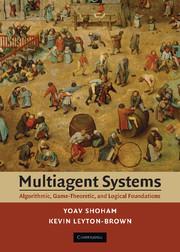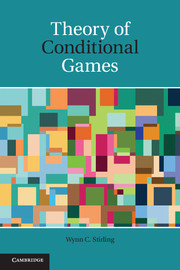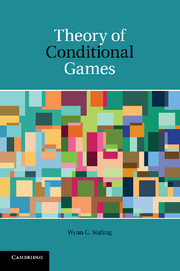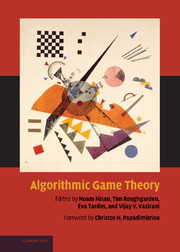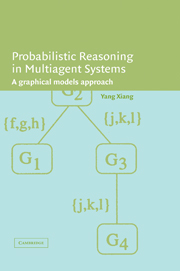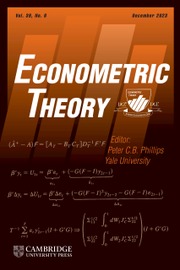Multiagent Systems
Multiagent systems combine multiple autonomous entities, each having diverging interests or different information. This overview of the field offers a computer science perspective, but also draws on ideas from game theory, economics, operations research, logic, philosophy and linguistics. It will serve as a reference for researchers in each of these fields, and be used as a text for advanced undergraduate or graduate courses. The authors emphasize foundations to create a broad and rigorous treatment of their subject, with thorough presentations of distributed problem solving, game theory, multiagent communication and learning, social choice, mechanism design, auctions, cooperative game theory, and modal logics of knowledge and belief. For each topic, basic concepts are introduced, examples are given, proofs of key results are offered, and algorithmic considerations are examined. An appendix covers background material in probability theory, classical logic, Markov decision processes and mathematical programming.
- First rigorous introduction covering multiagent systems
- Covers broad area including computer science, game theory, and logic
- Does not require knowledge beyond typical undergraduate study and offers background material for probability theory, classical logic, and mathematical programming
Reviews & endorsements
"This is by far the best text in the field of multiagent systems, one of the fastest-growing areas in computer science."
Stuart Russell, University of California at Berkeley
"The integration of methodologies that study different aspects of interactive strategic systems is of vital importance in modern society. Through excellent side-by-side presentation of the main approaches in computer science, game theory and economics, this pioneering textbook is a major advance towards the education of a better-equipped generation of computer scientists as well as social scientists."
Ehud Kalai, Northwestern University
"This is a rich and comprehensive text on multiagent systems, written by two of the leading researchers in the area in an engaging and accessible style. It is unique in covering the diverse foundations of multiagent systems, including logic. Its extensive treatment of the interplay between computer science and game theory will define how the subject should be taught. I recommend the book for graduate students and
advanced undergraduates, as well as researchers in both computer science and economics trying to learn the basics of the field."
Joseph Halpern, Cornell University
"With the emergence of the Internet, the focus of much of the research in computer science and in artificial intelligence is shifting from the the study of the single program to the study of the interactions among different computers and programs. Multiagent Systems presents for the first time this cutting-edge research in a textbook form. The book transcends the traditional boundaries of artificial intelligence and touches all aspects of multiagent systems: from artificial intelligence to algorithms to game
theory, to logic, and beyond. Written by leaders in this research area, this book is certain to become the textbook of choice for classes on multiagent systems."
Noam Nisan, Hebrew University
"Shoham and Leyton-Brown traverse several disciplines to bring together the most salient and useful technical principles for understanding multiagent systems. This
text is the first to provide computer scientists with a comprehensive treatment of the mathematical machinery they need to analyze systems of autonomous agents, integrating their computational and strategic dimensions."
Michael Wellman, University of Michigan
"... a useful reference volume for researchers and a good foundational body of knowledge for those just starting their exploration of the field. It is rich in examples... With its 13 chapters, this volume definitely deserves a handy place on the shelves of those studying MAS... Highly recommended.
G. Trajkovski, Laureate Higher Education Group for Choice Magazine
"The book with its comprehensive and broad treatment promises to become the standard textbook on multiagent systems. It provides a useful and easy to read survey of a rapidly growing field. The text is one of the clearest expositions of
concepts in game theory. The book easily deserves to be on the shelf of any modern theoretical computer scientist."
Haris Aziz, SIGACT News
Product details
February 2009Adobe eBook Reader
9780511474149
0 pages
0kg
14 tables
This ISBN is for an eBook version which is distributed on our behalf by a third party.
Table of Contents
- 1. Distributed constraint satisfaction
- 2. Distributed optimization
- 3. Introduction to non-cooperative game theory
- 4. Computing solution concepts of normal-form games
- 5. Games with sequential actions
- 6. Richer representations
- 7. Learning and teaching
- 8. Communication
- 9. Aggregating preferences
- 10. Protocols for strategic agents
- 11. Protocols for multiagent resource allocation
- 12. Teams of selfish agents
- 13. Logics of knowledge and belief
- 14. Beyond belief.

